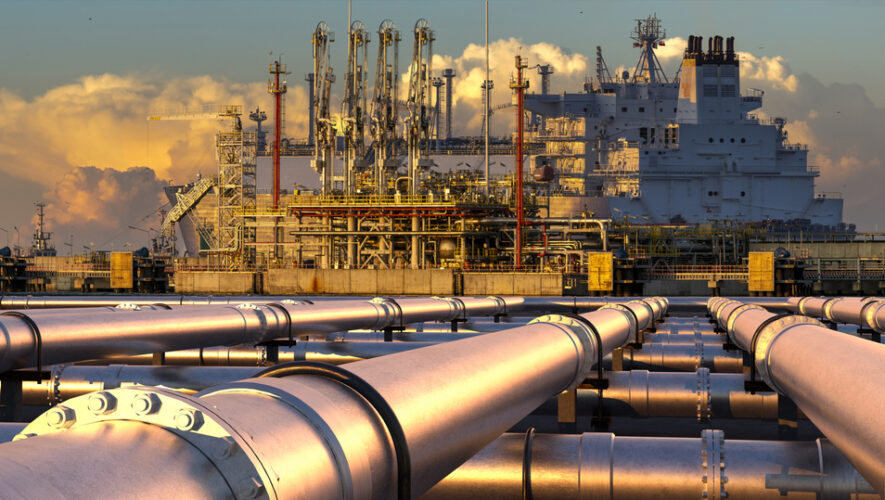Enbridge says that at this point, two options are under consideration
Optimism is growing that Enbridge Pipelines Inc. and producers and shippers of Canadian oil will reach a negotiated settlement on how shippers will pay to send crude on Enbridge’s Mainline system, Canada’s key export pipeline, over the next decade.
“I think we’re looking at a fairly short timeline of perhaps six months or a year,” said Tristan Goodman, the Calgary-based president and CEO of The Explorers and Producers Association of Canada (EPAC). “Everyone is very interested in being collaborative.”
In November, Enbridge’s application to introduce a system known as “firm service” — under which customers contract long-term for guaranteed delivery of specified volumes — on its Canadian Mainline was denied by the Canada Energy Regulator (CER). On Nov. 28, just two days after the decision, Enbridge signalled its desire to re-engage rather than appeal. The company has been negotiating with its shippers since.
Enbridge says that at this point, two options are under consideration, with a decision on which one the company will pursue expected in mid-2022.
The first option is an agreed-upon incentive tolling arrangement that is aligned with specific customers, incentivized to optimize the system and to provide a premium return to the company. The timeline for such a scenario would see Enbridge filing a negotiated settlement with the CER in mid-2022, followed by a regulatory review later in the year. If approved, the framework would be in place by mid-2023.
The second option is a contested cost-of-service structure that sees risks passed through to customers, rate-base driven growth and utility-like returns. In this scenario, Enbridge would file its cost-of-service application in mid-2022, with hearings commencing in late 2022 and a decision by mid-to-late 2023. Here, the framework would follow in late 2023.
“Our goal through this consultation is to determine which of the two options work best for our shippers,” said Jesse Semko, a spokesperson for the company, in an email response to inquiries from Financial Post.
For decades, Enbridge operated the Mainline pipeline, which dominates the market for transporting Canadian oil production to the U.S. and global markets, under the “common carrier” system, meaning that all of the pipeline’s enormous capacity has been available for short-term shipments of volumes that shippers could change every month. This gave shippers the flexibility to avoid long-term obligations.
But the last agreement expired in June 2021. The Mainline has been operating on interim tolls since.
In anticipation of the need for a new agreement, Enbridge consulted with a wide range of stakeholders. These included two disparate groups: companies who contract with Enbridge to ship oil on Canadian Mainline and who commonly own downstream refineries or have contracted capacity on downstream pipelines; and Canadian producers, most of whom have chosen to sell their crude to shippers upstream of the Mainline, rather than being shippers of record themselves.
Enbridge discovered that there was no consensus on the form of a new commercial structure. For the most part, shippers of record supported a “firm service” or “contracting” proposal, with 90 per cent of capacity reserved for long-term access to the Mainline. Those favouring a continuation of the “common carrier” system included various oil producers, EPAC, the Saskatchewan government, refiners and integrated companies, and a connected feeder pipeline.
Enbridge applied for firm service, reasoning that it made sense to ensure certainty for shippers in the long term. But firm service also reduced Enbridge’s long-term risks: because competing pipelines do offer shippers long-term contract alternatives, the company argued in its proposal, a firm-service system would “provide Enbridge with the tools to compete on a level playing field.”
Opponents of firm service, however, countered that a contracting system would give control of Canada’s most important pipeline to U.S. refiners. Samir Kayande, an independent energy business strategy consultant, writing in the Financial Post, argued that since refiners favour low crude prices, firm service would increase their bargaining power at the expense of explorers and producers who seek higher prices.
In its decision, the CER ruled that providing firm service on the Mainline was not contrary to the CER Act, which requires pipelines to “without delay and with due care and diligence, receive, transport and deliver all oil offered for transmission by means of its pipeline,” a mandate known as the common-carriage obligation.
Pipelines could satisfy the common carriage obligation by showing that their firm-service proposals provided a fair opportunity to access the service, and sufficient access remained after firm service was implemented.
Enbridge’s application, however, did not meet its common-carriage obligation because, among other things, it would result in significant changes in Mainline access, creating potentially inequitable outcomes to some shippers and non-shippers without a compelling justification.
“The ruling effectively preserves 70 years of open access to the pipeline,” Goodman said.
However that may be, the CER did not shut the door to firm- service access.
“The CER did lay down some broad principles as to what would amount to compliance with the common-carriage obligation, but it was also very careful not to pre-determine the results of any negotiations,” said Martin Ignasiak, a partner in Osler, Hoskin & Harcourt LLP’s Calgary office.
Any agreement reached between Enbridge and stakeholders will require CER approval. But Goodman believes the negotiations will proceed smoothly.
“The dispute over firm service was just a tactical operational disagreement,” he said. “We continue to have a very constructive relationship with Enbridge.”
